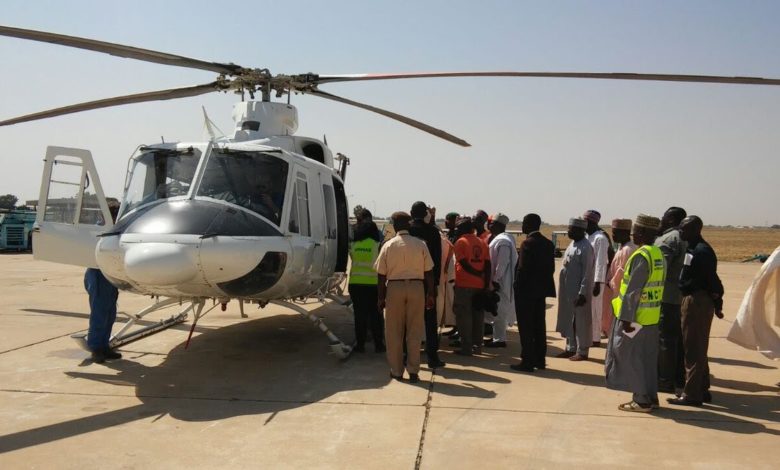UN Begins Evacuation Of Aid Workers From Northern Borno After Terrorist Attack
This is the second attack within 24 hours and the fourth of its kind in 2021.

The United Nations (UN) has commenced evacuation of aid workers out of humanitarian hubs in Monguno and Ngala, Northern Borno, Northeast Nigeria, following the recent overrunning of Dikwa and the siege on the organisation’s compound by terrorists.
HumAngle earlier reported that aid workers were forced to shelter in a bunker during a multipronged attack by insurgents belonging to Islamic State West Africa Province (ISWAP) between Monday evening and Tuesday morning, which led to the capture of the garrison town.
The current onslaught by the terrorists is at least the fourth attack on Dikwa in 2021, with two of them happening within 24 hours.
At least two other Non-Governmental Organisations’ compounds housing offices and guesthouses were set ablaze by the insurgents during the attack. The insurgents also took four vehicles.
The last time an attack of this magnitude was in Sept. 2018 in Baga.
HumAngle learnt that the UN initiated the evacuation of aid workers from the humanitarian hubs in the garrison towns of Monguno and Ngala over fears the overrunning of Dikwa poses due to the proximity to the two towns.
A source informed HumAngle that the connection was lost with the hub in Dikwa around midnight.
UN facilities in recent times have suffered attacks, leading to the deaths of aid workers and the abduction of others.
In June 2020, ISWAP members attacked the humanitarian hub in Monguno from two entry points, where over 50 aid workers were present when the attack was conducted, the UN said.
Similarly, on Jan. 18 2020, a whole section of a humanitarian hub in Ngala, close to the Cameroonian border, was set on fire. The five workers in the compound at the time escaped unscathed.
Another similar attack in Rann, Kala Balge Local Government Area of Borno State also saw an attack that led to the deaths of four Internally Displaced Persons (IDPs) and a badly damaged hub belonging to the International Organisation for Migration (IOM).
Support Our Journalism
There are millions of ordinary people affected by conflict in Africa whose stories are missing in the mainstream media. HumAngle is determined to tell those challenging and under-reported stories, hoping that the people impacted by these conflicts will find the safety and security they deserve.
To ensure that we continue to provide public service coverage, we have a small favour to ask you. We want you to be part of our journalistic endeavour by contributing a token to us.
Your donation will further promote a robust, free, and independent media.
Donate HereStay Closer To The Stories That Matter




